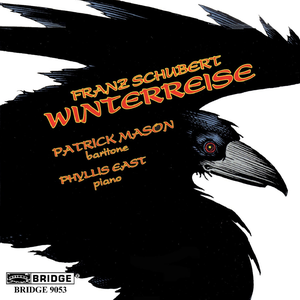Born in the Himmelpfortgrund suburb of Vienna, Schubert showed uncommon gifts for music from an early age. His father gave him his first violin lessons and his elder brother gave him piano lessons, but Schubert soon exceeded their abilities. In 1808, at the age of eleven, he became a pupil at the Stadtkonvikt school, where he became acquainted with the orchestral music of Joseph Haydn, Wolfgang Amadeus Mozart, and Ludwig van Beethoven. He left the Stadtkonvikt at the end of 1813 and returned home to live with his father, where he began studying to become a schoolteacher. Despite this, he continued his studies in composition with Antonio Salieri and still composed prolifically. In 1821, Schubert was admitted to the Gesellschaft der Musikfreunde as a performing member, which helped establish his name among the Viennese citizenry. He gave a concert of his works to critical acclaim in March 1828, the only time he did so in his career. He died eight months later at the age of 31, the cause officially attributed to typhoid fever, but believed by some historians to be syphilis.
Appreciation of Schubert's music while he was alive was limited to a relatively small circle of admirers in Vienna, but interest in his work increased greatly in the decades following his death. Felix Mendelssohn, Robert Schumann, Franz Liszt, Johannes Brahms and other 19th-century composers discovered and championed his works. Today, Schubert is ranked among the greatest composers in the history of Western classical music and his work continues to be admired and widely performed.
Der Lindenbaum
Franz Schubert Lyrics
Jump to: Overall Meaning ↴ Line by Line Meaning ↴
Da steht ein Lindenbaum
Ich träumt' in seinem Schatten
So manchen süßen Traum
Ich schnitt in seine Rinde
So manches liebe Wort
Es zog in Freud und Leide
Ich musst' auch heute wandern
Vorbei in tiefer Nacht
Da hab ich noch im Dunkel
Die Augen zugemacht
Und seine Zweige rauschten
Als riefen sie mir zu:
Komm her zu mir, Geselle
Hier find'st du deine Ruh
Die kalten Winde bliesen
Mir grad ins Angesicht
Der Hut flog mir vom Kopfe
Ich wendete mich nicht
Nun bin ich manche Stunde
Entfernt von jenem Ort
Und immer hör ich's rauschen
Du fändest Ruhe dort
Du fändest Ruhe dort
The first stanza of Franz Schubert's song "Der Lindenbaum" depicts a scene of a Linden tree, a common symbol of love and life, standing in front of a fountain by the gate. The singer regards the tree as a place where he has had many sweet dreams and spoken many lovely words etched into its bark. The Linden tree serves as a harmonious safe haven from the chaos of life, and has become the singer's only place of solace. The song starts with a peaceful and comforting tone, reflecting the tranquility of the Linden tree.
The second stanza portrays the singer revisiting the Linden tree during a long and arduous journey in the middle of the night. The Linden tree's branches rustle as if beckoning him to seek shelter and rest under its shadow. However, the cold winds blowing against his face and the loss of his hat create a sense of discomfort and unease. Even as the singer moves away from the Linden tree, he is plagued by the thought that he would find true peace and respite if only he could go back and stay there. The song ends on a melancholic note, with the singer yearning to return to the Linden tree, where he feels safe and content.
Line by Line Meaning
Am Brunnen vor dem Tore
I stood by the well in front of the gate
Da steht ein Lindenbaum
Where a linden tree stands
Ich träumt' in seinem Schatten
I dreamed in its shade
So manchen süßen Traum
So many sweet dreams
Ich schnitt in seine Rinde
I carved into its bark
So manches liebe Wort
So many dear words
Es zog in Freud und Leide
It drew me in joy and sorrow
Zu ihm mich immer fort
Always drawing me towards it
Ich musst' auch heute wandern
I had to wander today
Vorbei in tiefer Nacht
Past it, deep in the night
Da hab ich noch im Dunkel
Then in the dark
Die Augen zugemacht
I closed my eyes
Und seine Zweige rauschten
And its branches rustled
Als riefen sie mir zu
As if calling out to me
Komm her zu mir, Geselle
Come to me, fellow traveler
Hier find'st du deine Ruh
Here you will find your rest
Die kalten Winde bliesen
The cold winds blew
Mir grad ins Angesicht
Straight into my face
Der Hut flog mir vom Kopfe
My hat flew off my head
Ich wendete mich nicht
I did not turn back
Nun bin ich manche Stunde
Now I am many hours
Entfernt von jenem Ort
Removed from that place
Und immer hör ich's rauschen
But I still hear its rustling
Du fändest Ruhe dort
You would find peace there
Du fändest Ruhe dort
You would find peace there
Contributed by Brody T. Suggest a correction in the comments below.

@editfc7886
Wer ist auch wegen Musikunterricht hier?
@janisstork4222
Ich😂
@davidhuber5863
me too
@l3on170
Ich😒
@simon_0831
ich ..
@eltaccco8035
7e
@GARYINLEEDS
Love is: Being here in 2022.
Thanks for sharing, shared.
@kristindelucci41
Love Schubert’s lieder. Beautiful performance
@user-li1tb3od8l
This is literally me when I'm increasingly absorbed into my own world
@renzo6490
From watching a documentary on Gustav Klimt, I learned that, while working in his studio, he liked to hum this melody. Here is one of the beauties of the internet.....I stopped the documentary and found this. I listened to the music and now will return to Klimt!